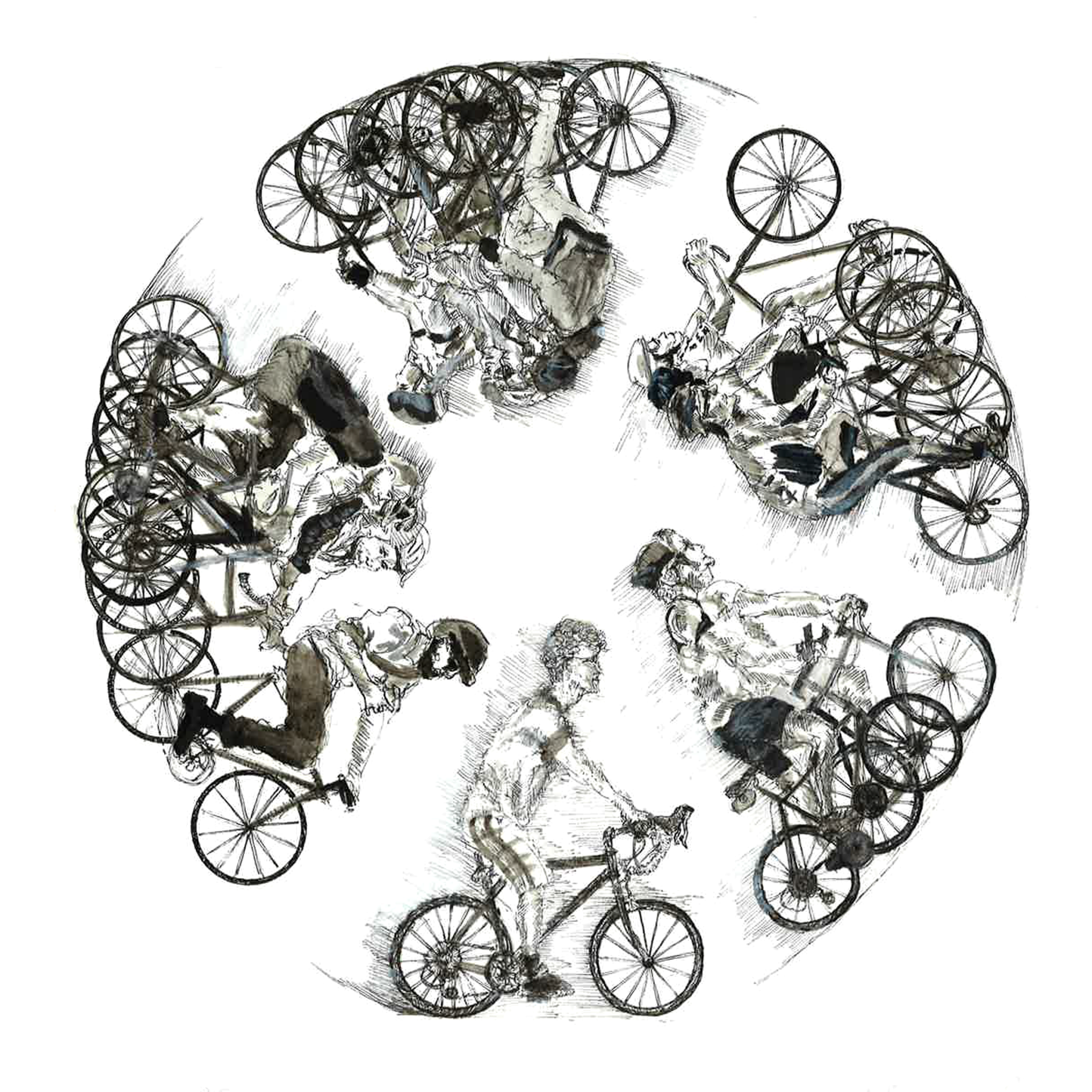The weather man did not tell the truth,” remarked Oboi Reed, smiling defiantly despite the pouring rain. This was the sort of day that made me want to crawl back into bed, not the best biking weather. But there I was, setting out for a bike tour through the Roseland and Pullman neighborhoods.
We met at the New Light of the World Ministries on 108th Street, where Oboi Reed and Jamal Julien, co-founders of the Chicago chapter of the Slow Roll movement, spoke to the assembled cyclists about the project.
Founded in Detroit, Slow Roll is a newcomer to Chicago. This was only the second of their planned monthly rides, but its events have exploded in Detroit, with roughly 4,000 riders attending weekly rides.
“Slow Roll for us is a tool to improve our communities,” Reed explained. “The potential for people to live healthier lives, to connect in a deeper way with one another, to shop locally, to explore their neighborhood from the perspective of two wheels. We look at communities on the North Side and we say we can have strong retail, we can have healthy families, strong schools, we can have communities that are more bikeable and livable.”
Pastor Kirk Bell of the New Light of the World Church also sees the organization’s potential. “We been here about ten months…It’s been a challenge because of a lot of the gang activity,” he explained. “The challenges that the kids have, that’s what brought us [the church] here. Being connected with Slow Roll has opened up another avenue to give the kids who live here an opportunity to get out of this community and to begin to see that there are other things going on outside of the drugs, the gangs, and the intimidation, give them opportunity to meet a diversity of people. It’s been a challenge but it’s the challenge that keeps us here.”
Our ride maintained an easy pace that promoted conversation and allowed for riders of all abilities. There were about a dozen children (two of them Julien’s), as well as a few older people and a blind man on the back of a tandem bike. Reed and Julien immediately addressed any passers-by with a little shameless self-promotion. “Slow Roll Chicago, baby!” exclaimed Julien. “All are welcome! You got a bike, my man?”
We cut through the Chicago State University campus on our way to the first stop on our tour, the A. Philip Randolph Pullman Porter Museum, where we were greeted by founder Dr. Lyn Hughes and President David Peterson. The museum is dedicated to preserving and educating people about the legacy of A. Philip Randolph and the contributions made by African-Americans to the labor movement.
“People who were descendants of these men and women … began to send us things that you see on display here,” said Dr. Hughes. ”The membership cards, the lantern, the cap, the keys, those kinds of things, buttons. We like to say that we are the missing piece to the Pullman story.”
After a stop at the Pullman State Historic Site we headed back to the church, but not before dismounting at our third and final stop, the Kids Off the Block Memorial. The memorial is a small lean-to filled with brick slabs arranged into rows commemorating dozens of young people lost to violence in Chicago. Riders somberly walked under the lean-to’s roof to read the names inscribed on the bricks.
Although the tour included moments of fun, the stop at the memorial made it clear that Reed and Julien also have a mission.
“It’s really important that we change the narrative,” Julien said. “Right now there’s a lot of projection of negative images of various communities within Chicago, but we find that it’s a lot safer than what’s projected in mass media. From a bicycle you have more of an opportunity to see and experience and absorb the neighborhood, and smell and hear the heartbeat of the community. We can bring people out of their houses and introduce them to some of the awesome things that we have in communities on the South and West Sides of Chicago.”

